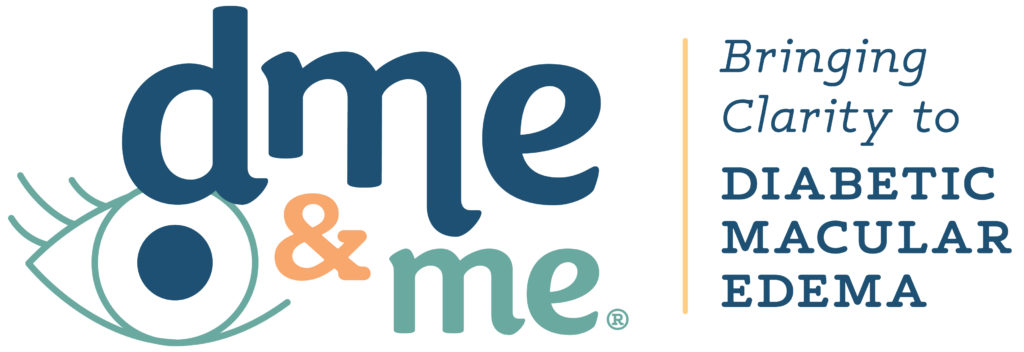Diabetic macular edema (DME) is an eye condition that can affect those with type 1 or type 2 diabetes. It can lead to blindness if left untreated, and some of the symptoms for DME include:
- Blurred vision
- Double vision
- Seeing washed out colors
- An increase in eye floaters – spots or strings in your field of vision
If you’re living with diabetes and experiencing some of these symptoms, you might want to talk to your eye doctor to get a better understanding of this condition and develop a plan to prevent further damage. This article will discuss five questions to consider asking when talking with your eye doctor about DME.
1. How does diabetes affect diabetic macular edema (DME)?
People diagnosed with diabetes have high glucose levels in their bodies, meaning they have too much sugar in their bloodstream. When glucose levels stay too high, blood vessels in the body, including the eyes, can be damaged.
High levels of glucose associated with diabetes can cause inflammation and subsequent damage to the blood vessels in the retina. This damage may lead to fluid leakage into the macula, which is responsible for central vision. Blood vessels in the eye nourish the retina, but when they leak, the retina begins to swell which may lead to blurred vision. Be sure to talk to your doctor about your specific blood sugar levels and your increased risk of DME.
2. Are there steps I can take to help slow the progression of DME?
One of the first steps toward slowing the progression of DME is to manage your diabetes and lower your hemoglobin A1C level. The A1C test is a simple blood test that measures your blood sugar levels over the past three months. You can lower your blood sugar levels by exercising regularly and eating a healthy diet with more fruits and vegetables and less processed foods. Additionally, you’ll want to watch your blood pressure and cholesterol levels as they could be additional risk factors for patients with DME.
People living with diabetes are advised to schedule a yearly, comprehensive dilated eye exam with their doctor, but you might need to schedule more depending on the severity of your case. If you’ve been diagnosed with or show symptoms of DME, the most important thing you can do is keep all your scheduled appointments with your eye doctor.
3. How does recurring DME affect my vision?
Recurring DME can lead to permanent vision problems such as:
- Vision loss
- Blurred vision
- Trouble seeing at night
- Double vision
- Increased eye floaters
- Loss of peripheral vision
High blood sugar levels can damage blood vessels in the retina causing swelling to occur which can lead to vision loss. Make sure to talk to your doctor about your specific vision problems and the causes associated with them.
4. What are my options for treating DME and improving my vision?
There are a variety of treatment options for DME. When you talk to your doctor, they may recommend one or more of the following treatments: anti-VEGF therapy, corticosteroids, or laser photocoagulation.
Anti-VEGF (vascular endothelial growth factor) drugs are injected into the eye to treat blood vessels leaking fluids into the retinal tissue and help improve vision. Your doctor may recommend multiple injections over time, and the frequency of the injections varies based on your doctor’s recommendations and the type of drug used.
Corticosteroids are steroids injected into the eye to reduce inflammation and help improve vision. Your doctor may recommend dexamethasone or fluocinolone acetonide (FAc). The effects of the dexamethasone implant can last between 4 and 6 months, and the implant containing FAc treats DME by releasing small doses of the steroid for up to 36 months.
Laser photocoagulation is a therapy that seals off blood vessels in the eye to prevent more leakage into the retinal tissue. The goal of laser therapy is to protect your existing vision and prevent blood vessels from leaking fluids into the eye.
Your eye doctor will have the best options for treating DME, so talk with them in more detail about the best treatments for you.
5. I have had diabetes for ___ year(s). Will this affect DME treatment types available to me?
Not everyone who has diabetes will develop DME, but all patients with diabetes are at a higher risk of developing this condition. If diagnosed early, DME can be managed with the right treatments. However, if left untreated, DME can lead to irreversible changes in vision. The treatments listed above can help prevent further vision loss and even improve vision in many cases. It’s important to keep your appointments with your eye doctor to best manage your DME.
It’s not too late to talk to your eye doctor about DME and get the treatment necessary to prevent further damage. For more information about DME and treatment options, click here.


